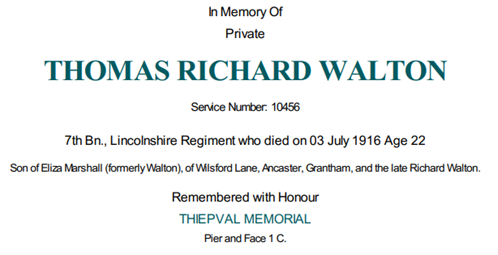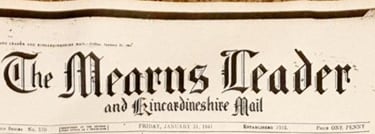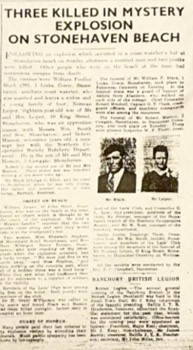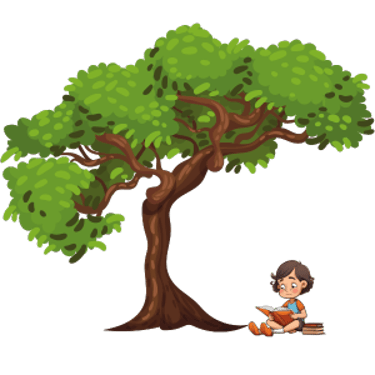Online Repositories [7 of 8]
FAMILY HISTORY


Online repositories are a valuable resource for family history research. They provide a wealth of information about our ancestors, including birth, marriage, and death records, census records, military records, and immigration records to list just a few.
Online Repositories
Online repositories are a valuable resource for family history research. They provide a wealth of information about our ancestors, including birth, marriage, and death records, census records, military records, and immigration records to list just a few. Some companies/organisations offer just a small number of these, perhaps specialising in a particular aspect of history, whilst others offer a wider selection. By accessing these records, we can learn more about our family's past and gain a better understanding of our heritage.
Online repositories also provide access to a variety of other resources, such as photographs, newspaper articles, and oral histories. These resources can help us to gain a better understanding of our ancestors' lives and their experiences. They can also provide us with a glimpse into the past and help us to connect with our ancestors in a more meaningful way.
A short summary of those most helpful to me personally follows.
The Federation of Family History Societies (LFHS) [https://www.familyhistoryfederation.com/]. The UK (largely England with Scotland and Wales having their own "branches") is covered by a network of Local Family History Societies under the banner of The Federation of Family History Societies and promotes interest in researching family history whilst encouraging membership of its member societies. Local branches, like the Lincolnshire Family History Society, have premises of their own which are staffed, in the main, by volunteers. The society members transcribe and publish various records for members benefit in addition to the many events and activities on offer.
Commonwealth War Graves Commission (CWGC) [https://www.cwgc.org/]. The CWGC is a global organisation, caring for war graves at 23,000 locations in more than 150 countries and territories. We commemorate almost 1.7 million individuals, ensuring that all the Commonwealth men and women who died during both world wars are commemorated in a manner befitting their sacrifice (Commonwealth War Graves Commission, 2023). The cemeteries, graves and headstones (with images) are indexed and fully searchable online. Part of the CWGC certificate of Thomas Richard WALTON is at Figure 11.
Figure 11 Private Thomas Richard WALTON
The National Archives [https://www.nationalarchives.gov.uk/]. “We are a non-ministerial department, and the official archive and publisher for the UK Government, and for England and Wales. We are the guardians of over 1,000 years of iconic national documents.
We are expert advisers in information and records management and are a cultural, academic and heritage institution. We fulfil a leadership role for the archive sector and work to secure the future of physical and digital records.
We collect and secure the future of the government record, from Shakespeare’s will to tweets from Downing Street, to preserve it for generations to come.
Between 2003 and 2006, four government bodies – each specialising in particular aspects of managing information – joined together to form a single organisation in The National Archives:
the Public Record Office, created as a result of the Public Record Office Act 1838 – the national archive of England, Wales and the United Kingdom government, dedicated to preserving key public records and making them accessible to researchers
the Royal Commission on Historical Manuscripts, appointed under Royal Warrant in 1869, performs the Historical Manuscripts Commission’s functions in relation to private records
His Majesty’s Stationery Office, founded in 1786, holder of Crown copyright and official printer of all Acts of Parliament since 1889
the Office of Public Sector Information, created in 2005 following a European Union directive to promote the re-use of information produced and collected by public sector organisations (The National Archives, 2023).
Family Search [https://www.familysearch.org/en/]. The Church of Jesus Christ of Latter-day Saints provides Family Search free of charge to everyone, regardless of tradition, culture, or religious affiliation. Family Search resources help millions of people around the world discover their heritage and connect with family members.
We help people discover their family’s history through our website, mobile apps, and in-person help at over 5,000 local family history centres (Family Search, 2023).
Scotland’s People [https://www.scotlandspeople.gov.uk/]. The Scotland’s People website is the official Scottish Government site for searching government records and archives.
It is used by hundreds of thousands of people each year to apply for copies of official certificates and to research family history, biography, local history and social history.
In the site you have access to the statutory registers of births, marriages, deaths, and so on; census returns; church records; valuation rolls; and legal records from Scotland's courts of law (National Records of Scotland, 2023). And a fantastic resource it is too.
The British Newspaper Archive [https://www.britishnewspaperarchive.co.uk/]. Newspapers are an invaluable resource for researching your family history. Contained within their pages are tens of millions of reports, advertisements, and notices that can help you break down brick walls and tell richer stories about your ancestors. The Archive works with the British Library and publishers to bring you 300 years of newspapers from the UK and Ireland. Get the most out of our historical newspapers with these hints and tips at this blog post [The British Newspaper Archive Blog Newspapers for Family History | The British Newspaper Archive Blog].
In 1941 a local newspaper (see Figure 12) reported on a tragic event that took place in Stonehaven. This serves to illustrate the richness and the validity of older newspapers, as a source of evidence and local history. The Mearns Leader and Kincardineshire Mailreported on 31st January 1941, of a wartime explosion on the beach.
Figure 12 Three Killed in Mystery Explosion on Stonehaven Beach
The photocopy I have reproduced here is fading over time and although I have electronic copies, the original is still faded.
The names of those lost this day are also recorded on the Stonehaven War Memorial “The structure is an incomplete round temple and was intentionally designed as such to be a reminder of the loss of life and incompleteness of a full life of those who died in the Wars” (Dunecht Estates, 2023).
References
Commonwealth War Graves Commission, 2023. Our Story. [Online]
Available at: https://www.cwgc.org/who-we-are/our-story/
[Accessed 2 March 2023].
Dunecht Estates, 2023. History. [Online]
Available at: https://www.dunnottarcastle.co.uk/history
[Accessed 24 March 2023].
Family Search, 2023. About. [Online]
Available at: https://www.familysearch.org/en/about/
[Accessed 1 March 2023].
National Records of Scotland, 2023. ScotlandsPeople. [Online]
Available at: https://www.scotlandspeople.gov.uk/
[Accessed 22 February 2023].
The National Archives, 2023. About Us. [Online]
Available at: https://www.nationalarchives.gov.uk/about/
[Accessed 2 March 2023].






(c) 2024
